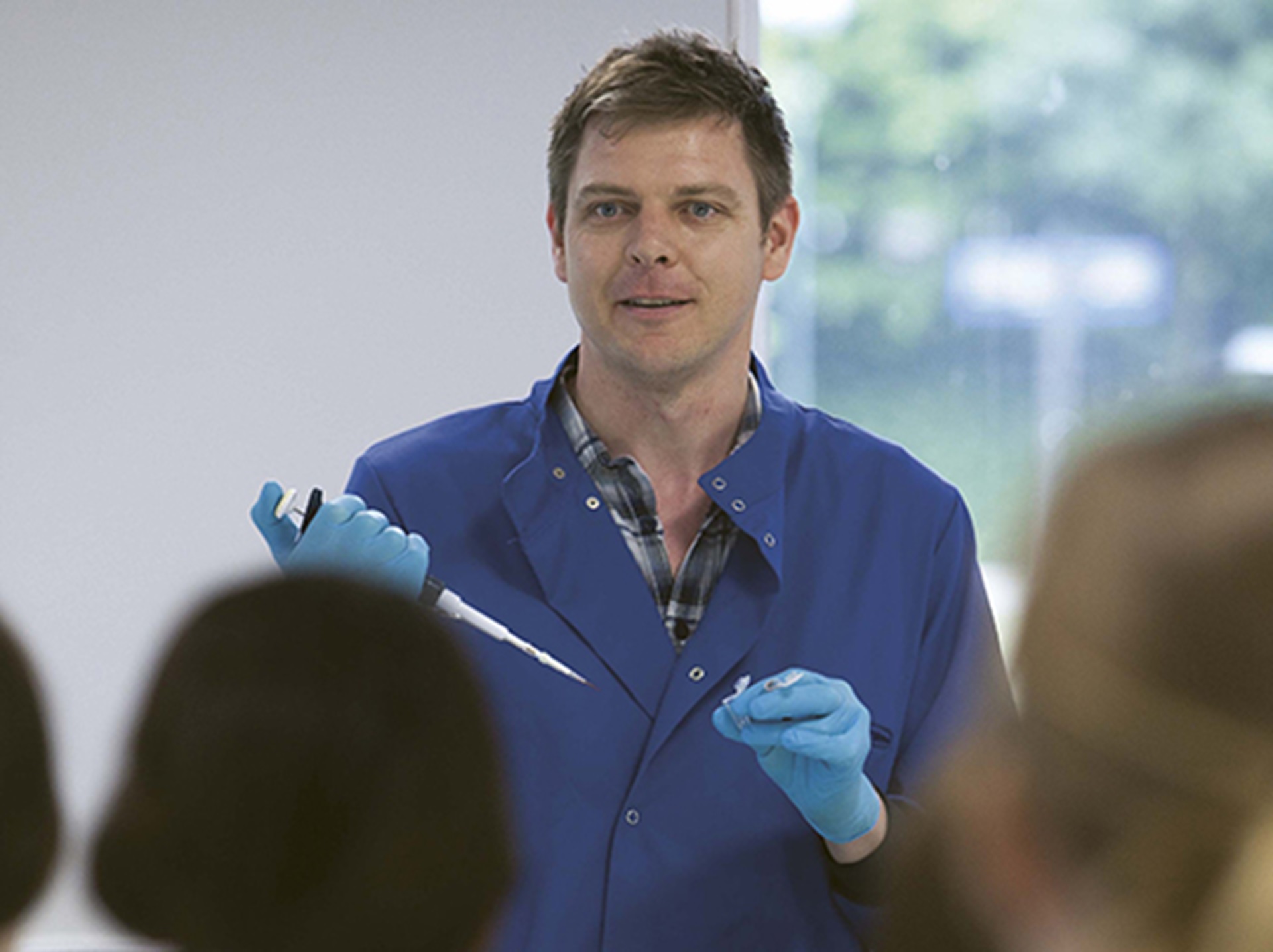Completion date: PhD (non-clinical) 1998
Professor Dan Lloyd completed his PhD at The Institute of Cancer Research in 1998. Remaining within academia, he is now the Deputy Head of School of Biosciences at the University of Kent. His research into DNA damage, and how this relates to cancer and its treatment, underpins varied teaching, research and managerial responsibilities.
After an undergraduate degree in chemistry, Dan was keen to apply his knowledge towards understanding human disease. “I was motivated by the mission of the ICR and was particularly interested in moving into the area of cancer research,” he says. His PhD project, focusing on how cells respond to DNA damage, provided the perfect crossover between chemistry and biology.
Looking back at his time at the institute, Dan reflects on the varied opportunities that have helped him over his career. He says: “As a world-leading research institution, and in a very well-regarded research group, it certainly opened doors. I had the opportunity to attend conferences internationally and meet world-leading scientists.”
After finishing his PhD, Dan took up a postdoctoral position at Stanford University in California, where he continued with more research into DNA damage and repair.
Moving to the University of Kent in 2001, Dan now splits his time between his research and teaching, with a particular focus on postgraduate curriculum development and education.
He is particularly proud to have been awarded a National Teaching Fellowship – the most prestigious award for teaching in higher education.
Dan reflects back on what it was like to do his PhD at the institute. “I loved the interdisciplinary environment. I lived with physicists, chemists and biologists. I interacted with nurses, clinicians, radiographers and patients, and with people from around the world. I really felt like I was at the centre of a real culture of discovery. It was an inspiring environment - and a very sociable one too.”
“I loved the social aspects of being at ICR – a close knit community with who you could share pressures, triumphs and failures. I had a great relationship with my supervisors, and I will always remember my many mentors who supported me,” he says.


